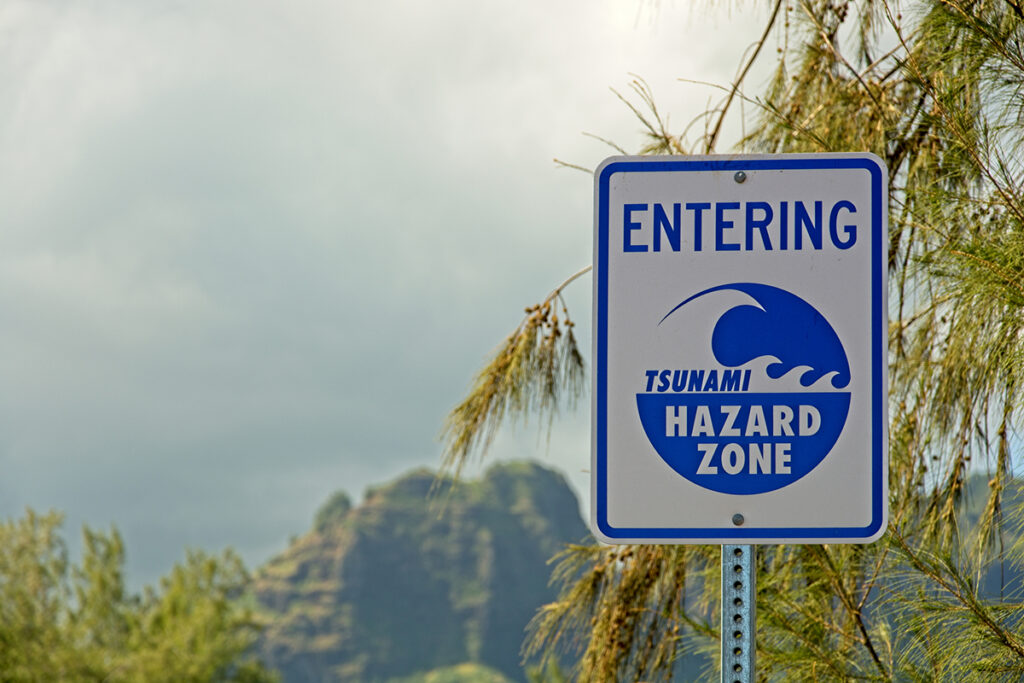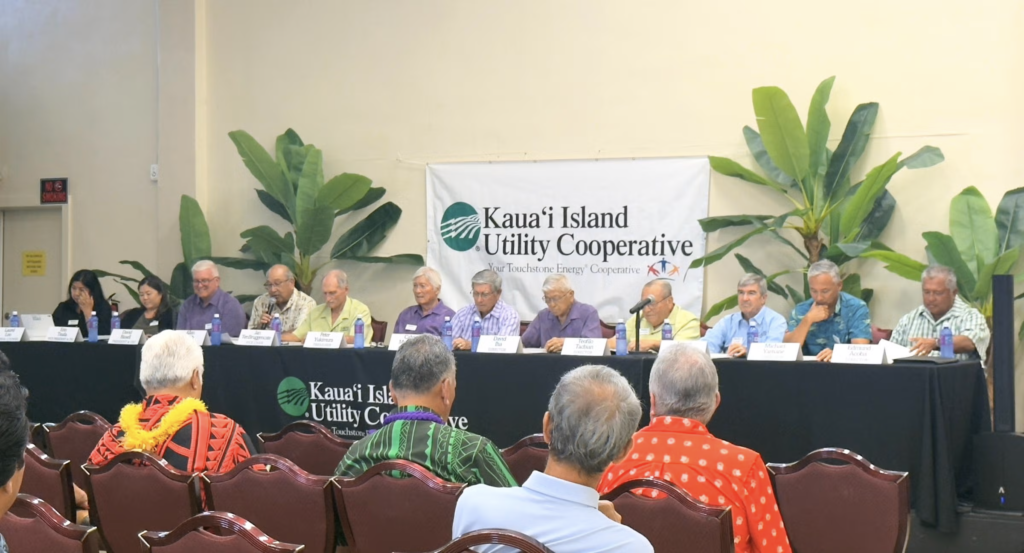
Kaua‘i Island Utility Cooperative faced a disaster last week that most electric cooperatives could never imagine—a potentially devastating tsunami heading its way within hours.
The National Weather Service issued a tsunami warning for the state of Hawaii shortly before 3 p.m. on July 29, prompted by the possible impact of a massive 8.8-magnitude earthquake in eastern Russia. The first wave of the tsunami could strike the state by 7:15 that night, the NWS declared.
“A series of powerful waves and strong currents may impact coasts near you,” warned the County of Kaua‘i. “You are in danger. Get away from coastal waters.”
At that point, said KIUC President and CEO David Bissell, “things got interesting very quickly.”
“Now you’ve got four to four-and-a-half hours to evacuate huge parts of the island,” he said.
KIUC, which has faced tsunami warnings before, immediately put the co-op emergency preparedness plan into effect, convening a meeting with key employees, including the chief of operations and the communications staff. The co-op also stayed in constant touch with state and county first responders.
“We decided to release all our employees but the most essential ones so that they could go home or get to evacuation centers,” Bissell said. “The first thing for us is taking care of our employees.”
Beth Amaro, member services and communications manager at the 33,000-member co-op, stayed at the office to get alerts out to members via mass email, Facebook and other social media platforms.
“Kaua‘i Island Utility Cooperative reminds members to stay safe and monitor local media for the latest information on the tsunami warning,” the co-op said in an email alert. “KIUC does not expect any power outages. However, in the event of an outage, power may not be restored until the tsunami warning is rescinded and our crews are able to safely access the area and complete any necessary repairs.”
Luckily, Bissell said, most of the co-op’s generation equipment is above sea level. While most of the co-op’s territory is outside of tsunami inundation zones, many members or employees who live in coastal areas had to be evacuated from their homes.
Nightmarish traffic jams resulted as residents throughout the island were released from their jobs shortly after the warning was sent, including most state and local government workers, Bissell said. People were rushing to get home as roads and bridges were closing.
Fortunately, tsunami impacts were relatively mild for Hawaii, and the warning was downgraded to an advisory at approximately 11 p.m., followed by an all-clear the following day that allowed people to return to homes, businesses and hotels along the coast. Waves on Kaua‘i’s shores never rose above about 2 feet, Bissell said.

Despite essential co-op crews working through the night amid the disaster scare, KIUC went ahead with its annual meeting the next day as planned, drawing more than 100 members to the event.
“Everybody reported to work as normal and off we went,” Amaro said. “We’ve got a pretty well-oiled machine here. The turnout was actually better than last year. We kept up our tradition of handing out bags of rice and serving up chili to our members to thank them for coming.”
But KIUC’s wild week wasn’t quite over. Last Friday, the NWS issued red flag warnings for elevated wildfire risk due to drought conditions in Hawaii. The co-op, which has a wildfire mitigation plan, alerted members to be prepared for potential outages with little or no notice if KIUC needed to proactively de-energize lines to reduce the danger.

With threats of tsunamis, wildfires, hurricanes and floods in their territory, the co-op has a multi-hazard preparedness plan and keeps a generous supply of poles and transformers on hand so its crews will have enough equipment to keep working for about a month while they wait for supplies to be barged to the island, Bissell said.
Kaua‘i residents are accustomed to being self-sufficient, Amaro said.
“One of the big advantages of such a small, isolated community is that people really know how to rely on each other,” she said. “We can depend on family and friends and neighbors. We all know how to work together and take care of each other, and that really helps.”
Erin Kelly is a staff writer for NRECA.